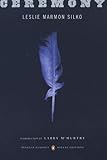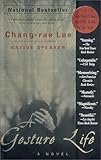In Eva Hoffman’s biographical book Lost in Translation, the main character struggles with different forms of displacement in her relocation from Poland to North America. In 1959, when Eva’s parents decide to immigrate, they take their daughter on a journey of self-(re)discovery. To find herself in the new world, Eva experiences the pangs of displacement as geographical, ethnic, but mostly linguistic.
Lost in Translation is divided in three parts, each one named after a period from Eva’s immigrant story. As much as they are chronological in their sequence, the chapters’ titles unambiguously reveal the development of Eva’s transformation: from being perfectly happy in her native Poland – Paradise - through becoming sick with the pain of the immigrant’s experience – Exile – to her successful curing in The New World.
First, Eva suffers with geographical displacement, and she calls it “the most palpable meaning of displacement” (132). She has “been dislocated from [her]… own center of the world, and that world has been shifted away from [her]… center” (132). She has been recognizing herself with this “small square on the map” so far; now, she is in a culture where her fellow students don’t even know the location of Poland: “Is Poland part of Russia?” they inquire (132). Eva is lost in transition from one place to another. She is not in the country with which she identifies and she does not feel at home in the new place.
Eva is ethnically displaced in America. As a child of proud Jewish and Polish parents, she looks at her new American friends from the recollected identification with her Polishness. About her best fiend at the university, Eva thinks, “[e]ven a relatively intelligible person, like Lizzy, poses problems of translation. She – and many others around me – would be as unlikely in Poland as gryphons or unicorns” (175). Lost in Translation proliferates meanings and redefinitions of ethnic belonging. During her childhood in Cracow, Eva learns to exist as a Jew in Poland in all its ambiguity. When her friend’s father finds out that Yola and Eva have been playing dangerous fantasy games, he blames her for it: “You are the leader of it. You little Jew” (34). From a young age, Eva Hoffman experiences the difficulties of belonging to an ethnic group in her home country. Relocation aggravates the problem even further. Ethnic displacement makes it even more difficult for the young Polish Jew to reconcile with her identity. Eva starts her quest of finding herself in a new language in a new world governed by new rules.
“It’s important to me to speak well as to play a piece of music without mistakes” (122): she reveals her method to overcome the sense of displacement. Eva Hoffman’s eloquent expression comes to a testimony for her successful linguistic survival in the new world. A Life in a New Language, as the subtitle of the book reads, becomes the goal of the immigrant. In Exile, Eva suffers the loss of Polish as the main language of communication. “I don’t see what I’ve seen, I don’t comprehend what’s in front of me. I am not filled with language any more, and I have only a memory of fullness to anguish me with the knowledge that, in this dark and empty state, I don’t really exist” (108). Existence for Eva is tantamount to control over language. The Descartian “I think, therefore I am” becomes “I speak, therefore I am.” Language defines the immigrant’s existence, and lack of language articulates another form of displacement – the most important one in Eva’s story. In her article on language memoirs, Alice Yeager Kaplan notes that “[t]here is no language change without emotional consequences. Principally: loss. That language equals home, that language is home, as surely as a roof over one’s head is a home…” (63). Eva can overcome the nostalgia by learning to speak the language of the new world. She realizes that finding herself means finding herself comfortable in speaking the language of her new home: “It’s not that we all want to speak the King’s English, but whether we speak Appalachian or Harlem English, or Cockney, or Jamaican Creole, we want to be at home in our tongue” (124). The prescription for treating linguistic displacement demands mastering a new language. “We want to be able to give voice accurately and fully to ourselves and our sense of the world” (124), concludes Eva. In the end, Eva naturally finds herself at home in America through language and literature: “In this country of learning, I’m welcomed on equal terms, and its’ through the democratizing power of literature that I begin to feel at home in America…” (184).
Eva Hoffman’s discovers a formula that guarantees recovery from her state of geographic, ethnic, and linguistic displacement. The cure is clear: mastery of the foreign language. Her book serves as the very medicine: by the end of the text, the main character is healed. She has learned to live in a new language: “When I fall in love, I am seduced by language. When I get married, I am seduced by language” (219); “When I talk to myself now, I talk in English” (272). She has achieved a new identity overcoming her sense of displacement: “I am here now,” states Eva in the last sentence of her book (280).











